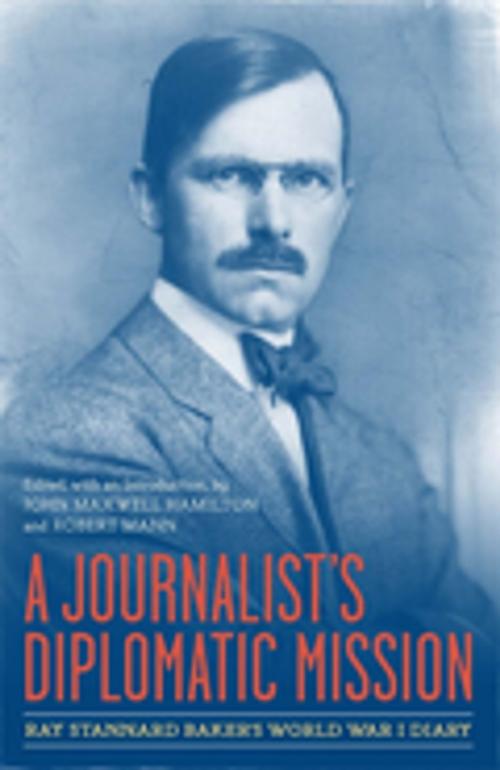A Journalist's Diplomatic Mission
Ray Stannard Baker's World War I Diary
Nonfiction, History, Military, World War I| Author: | ISBN: | 9780807144251 | |
| Publisher: | LSU Press | Publication: | December 7, 2012 |
| Imprint: | LSU Press | Language: | English |
| Author: | |
| ISBN: | 9780807144251 |
| Publisher: | LSU Press |
| Publication: | December 7, 2012 |
| Imprint: | LSU Press |
| Language: | English |
At the height of World War I, in the winter of 1917--1918, one of the Progressive era's most successful muckracking journalists, Ray Stannard Baker (1870--1946), set out on a special mission to Europe on behalf of the Wilson administration. While posing as a foreign correspondent for the New Republic and the New York World, Baker assessed public opinion in Europe about the war and postwar settlement. American officials in the White House and State Department held Baker's wide-ranging, trenchant reports in high regard. After the war, Baker remained in government service as the president's press secretary at the Paris Peace Conference, where the Allied victors dictated the peace terms to the defeated Central Powers. Baker's position gave him an extraordinary vantage point from which to view history in the making. He kept a voluminous diary of his service to the president, beginning with his voyage to Europe and lasting through his time as press secretary. Unlike Baker's published books about Wilson, leavened by much reflection, his diary allows modern readers unfiltered impressions of key moments in history by a thoughtful inside observer.
Published here for the first time, this long-neglected source includes an introduction by John Maxwell Hamilton and Robert Mann that places Baker and his diary into historical context.
At the height of World War I, in the winter of 1917--1918, one of the Progressive era's most successful muckracking journalists, Ray Stannard Baker (1870--1946), set out on a special mission to Europe on behalf of the Wilson administration. While posing as a foreign correspondent for the New Republic and the New York World, Baker assessed public opinion in Europe about the war and postwar settlement. American officials in the White House and State Department held Baker's wide-ranging, trenchant reports in high regard. After the war, Baker remained in government service as the president's press secretary at the Paris Peace Conference, where the Allied victors dictated the peace terms to the defeated Central Powers. Baker's position gave him an extraordinary vantage point from which to view history in the making. He kept a voluminous diary of his service to the president, beginning with his voyage to Europe and lasting through his time as press secretary. Unlike Baker's published books about Wilson, leavened by much reflection, his diary allows modern readers unfiltered impressions of key moments in history by a thoughtful inside observer.
Published here for the first time, this long-neglected source includes an introduction by John Maxwell Hamilton and Robert Mann that places Baker and his diary into historical context.















